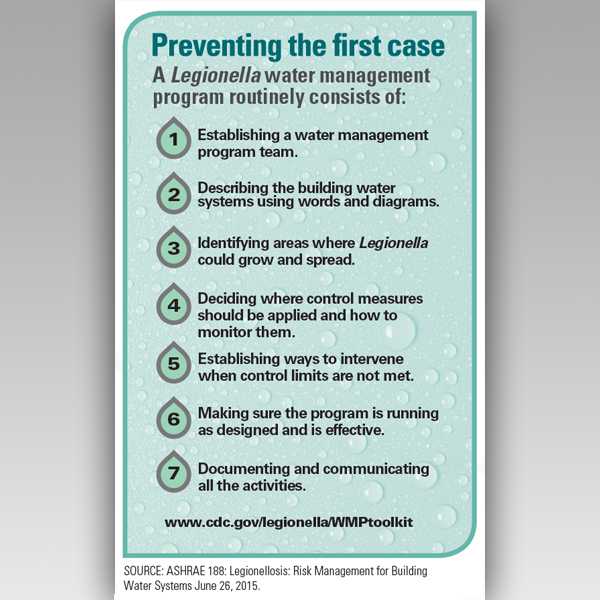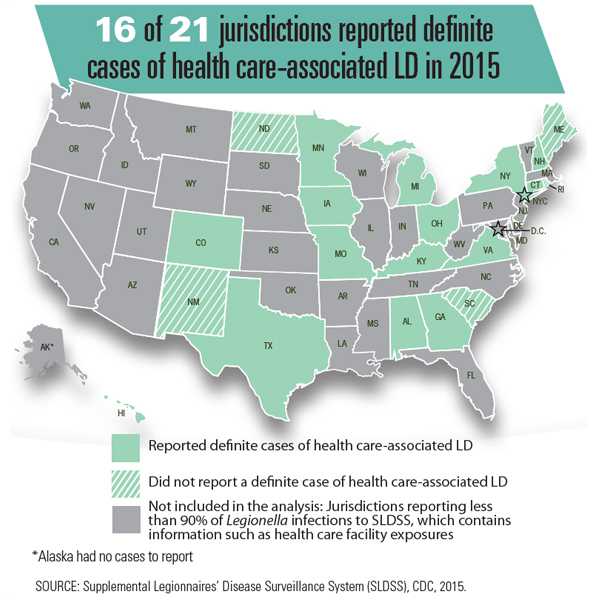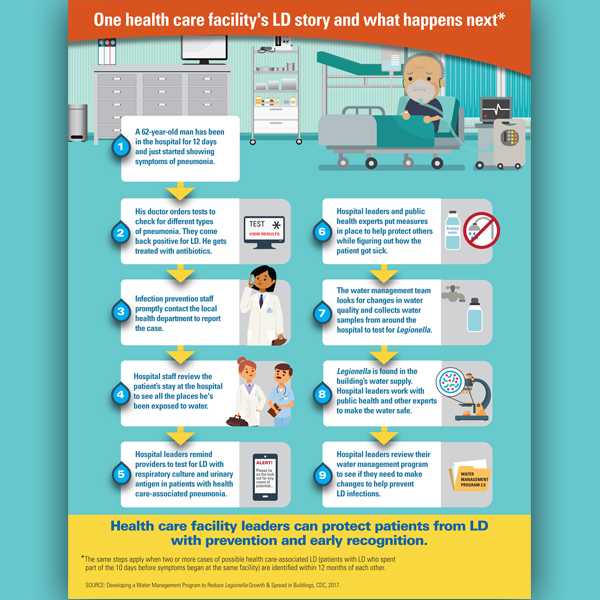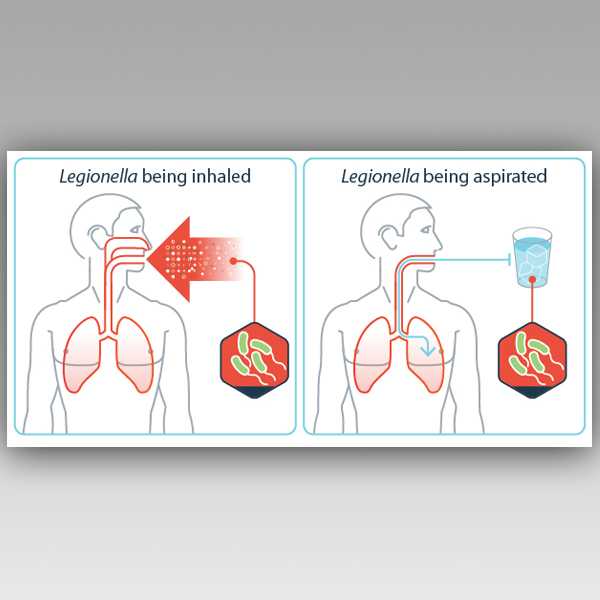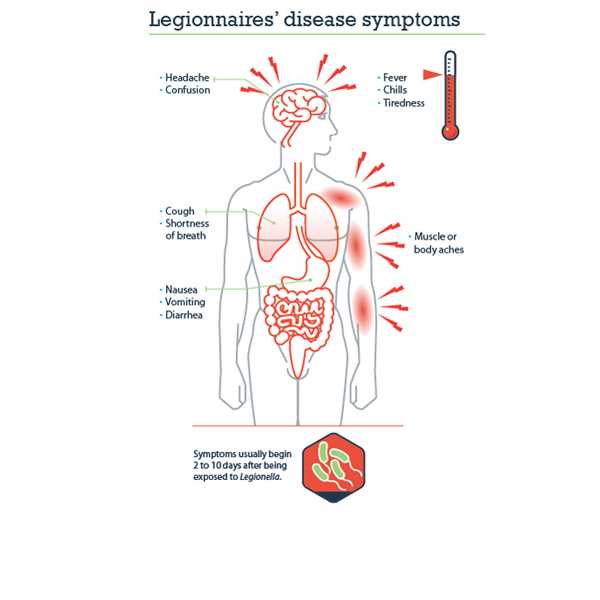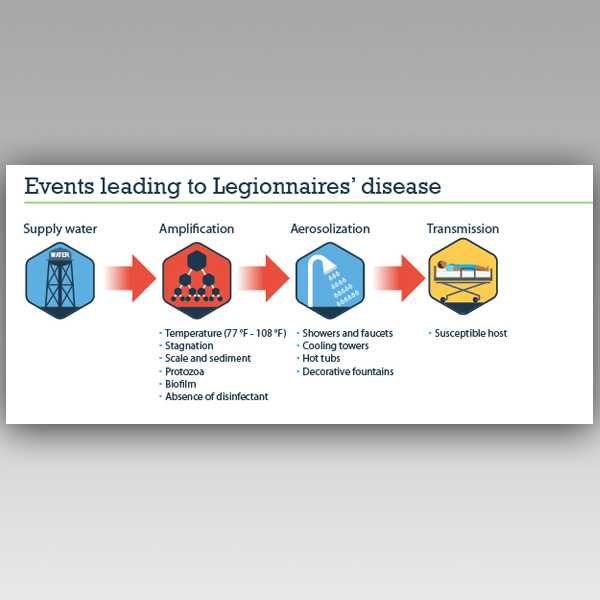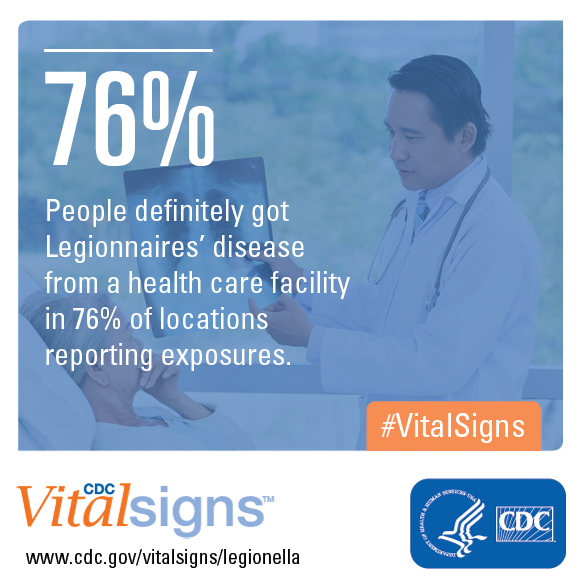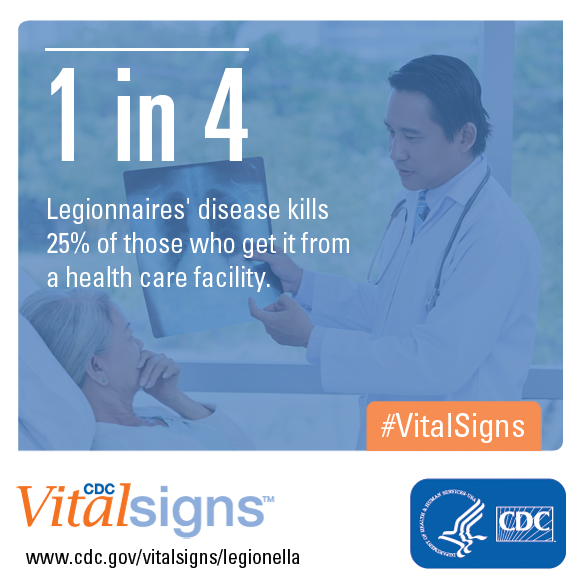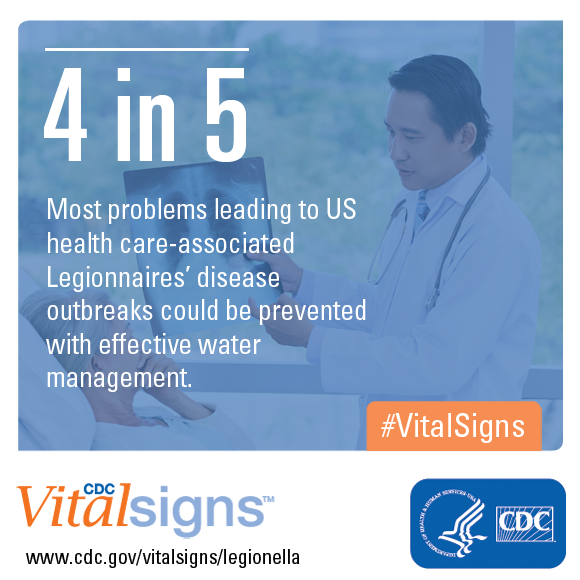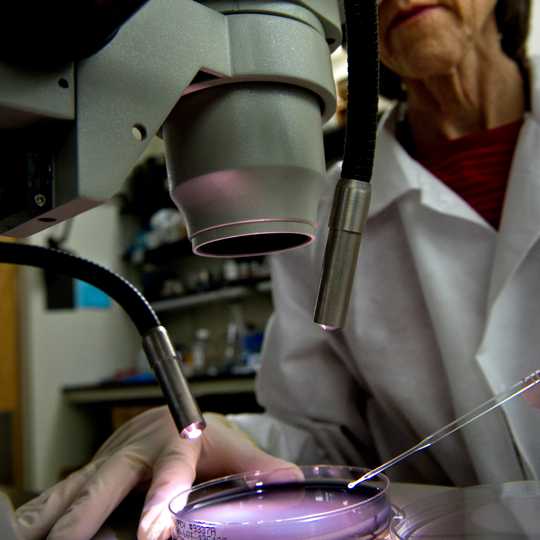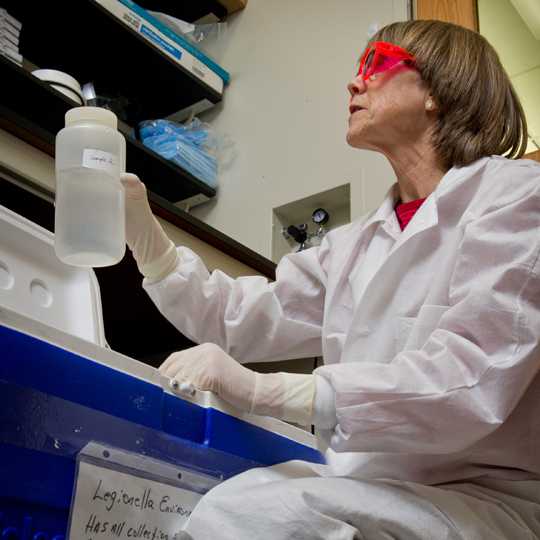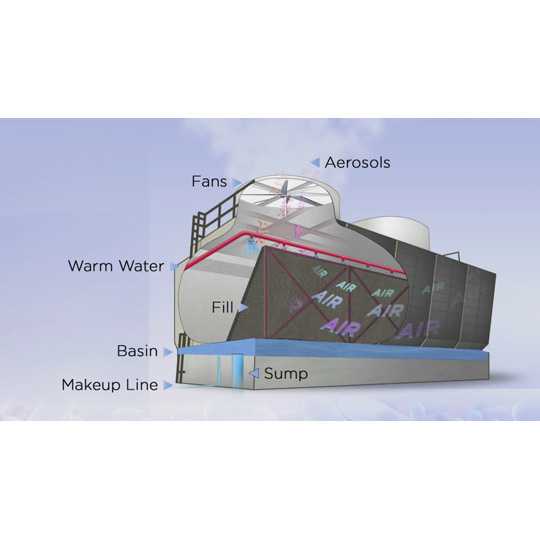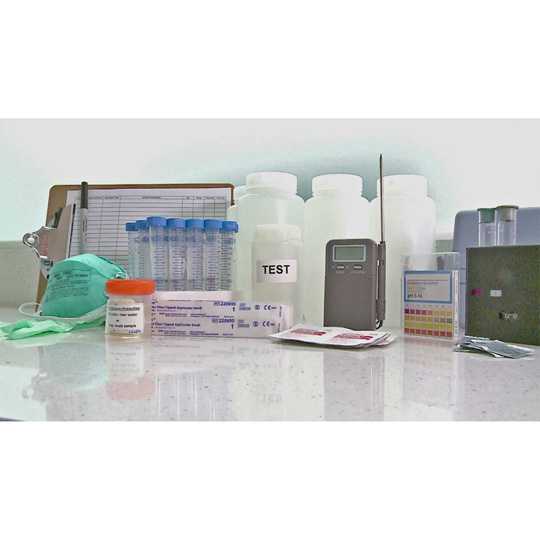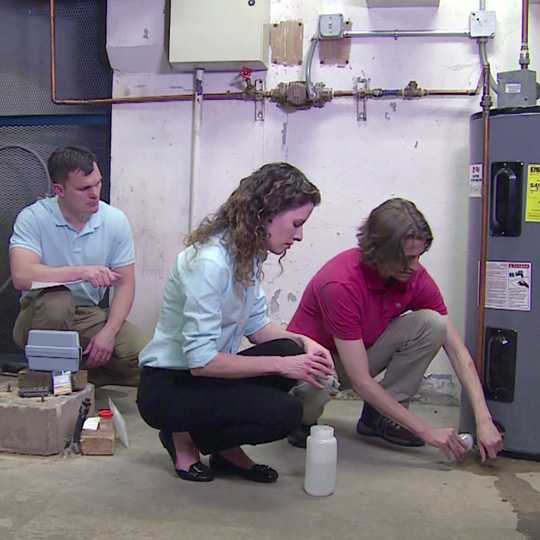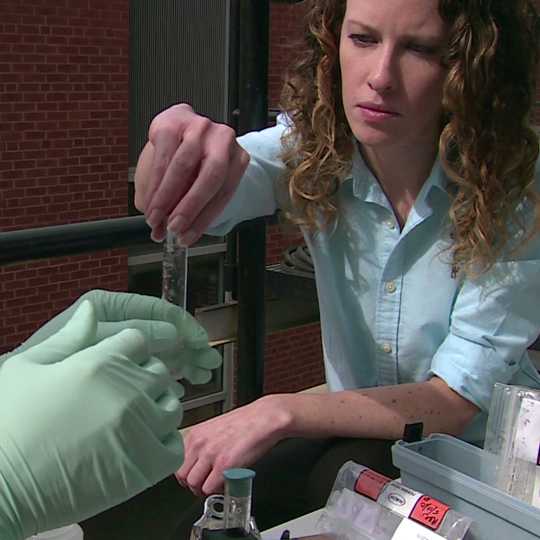Legionnaires’ Disease
A problem for health care facilities
Legionnaires’ disease is a risk in health care facilities across the United States, according to a new CDC Vital Signs report. Unfortunately, this serious bacterial lung infection is deadly for 1 in 4 people who get it from a health care facility.
Unlike most respiratory infections, Legionnaires’ disease is generally not spread from person to person — people usually get it by breathing in water droplets containing Legionella germs. Many people being treated at health care facilities, including long-term care facilities and hospitals, have conditions that put them at greater risk of getting sick and dying from Legionnaires’ disease.
Other key highlights from the Vital Signs report include:
- People definitely got Legionnaires’ disease from a health care facility in 76% of locations reporting exposures in 2015
- Most problems leading to US health care-associated outbreaks of Legionnaires’ disease could be prevented with effective water management
- When someone does get Legionnaires’ disease from a stay in a health care facility, early recognition and action can help prevent more infections
CDC is urging health care facility leaders to protect patients from Legionnaires’ disease by focusing on prevention and early recognition. A key action regarding prevention is creating and using a water management program to limit Legionella from growing and spreading in their building water systems. Testing patients who develop pneumonia after a stay in a health care facility for Legionnaires’ disease is important for recognizing a problem. Early recognition allows facility leadership and local public health authorities to investigate and prevent further infections.
Contact Information
CDC Media Relations
(404) 639-3286
media@cdc.gov
Factsheet:
Spokespersons
Anne Schuchat, MD

“Legionnaires’ disease in hospitals is widespread, deadly, and preventable. These data are especially important for health care facility leaders, doctors, and facility managers because it reminds them to think about the risks of Legionella in their facility and to take action. Controlling these bacteria in water systems can be challenging, but it is essential to protect patients.”
Anne Schuchat, MD – Principal Deputy Director of Centers for Disease Control and Prevention; Rear Admiral, U.S. Public Health Service; EIS Officer, Class of 1988
CAPT Nancy Messonnier, MD
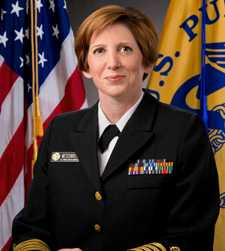
“Safe water at a health care facility might not be on a physician’s mind, but it’s an essential element of health care quality. Having a water management program that focuses on keeping facility water safe can help prevent Legionnaires’ disease.”
CAPT Nancy Messonnier, MD – Director, CDC’s National Center for Immunization and Respiratory Diseases
CAPT Cynthia Whitney, MD, MPH
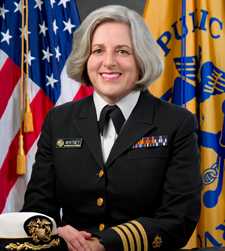
“Legionnaires’ disease is often serious because it affects people who are already vulnerable, like older adults, people who smoke, and people whose immune systems are weak from other illnesses or medicines. Many people receiving medical care are in one of these vulnerable groups. Clinicians should be thinking about Legionnaires’ disease as a possible diagnosis and testing for it in their patients who develop pneumonia after receiving medical care.”
CAPT Cynthia Whitney, MD, MPH – Chief, Respiratory Disease Branch, Division of Bacterial Diseases, CDC’s National Center for Immunization and Respiratory Diseases
Sujan Reddy, MD, MSc

“Effective water management in health care facilities can help prevent infections due to Legionella and other water-related bacteria. A multidisciplinary team, including healthcare leadership and facility managers, can develop and implement water management programs to limit these water-related bacteria from growing and spreading.”
Sujan Reddy, MD, MSc – Medical Director of the Prevention Epicenter Program, Division of Healthcare Quality Promotion, CDC’s National Center for Emerging and Zoonotic Infectious Diseases
CDR Jasen Kunz, MPH, REHS/RS
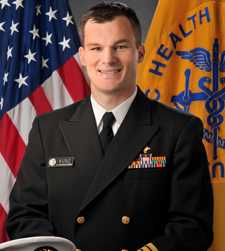
“Environmental health expertise is a key part of investigating Legionnaires’ disease outbreaks and good water management. Finding out where Legionella is hiding and removing it from the water systems are the most critical steps to prevent additional cases. CDC investigations show that 4 in 5 Legionnaires’ disease outbreaks in health care facilities are caused by problems that could be prevented with more effective water management.”
CDR Jasen Kunz, MPH, REHS/RS – Environmental Health Officer in CDC’s National Center for Environmental Health
Related Links
- Press Release: Patients in Health Care Facilities At Risk for Legionnaires’ Disease – English | Spanish
- MMWR – Vital Signs: Health Care-associated Legionnaires’ Disease: Surveillance Data from 20 States and a Large Metropolitan Area − United States, 2015
- MMWR – Vital Signs: Deficiencies in Environmental Control Identified in Outbreaks of Legionnaires’ Disease, North America, 2000–2014
- Vital Signs: Home | June 2017 Vital Signs | Fact Sheet | Topics
- Vital Signs: (Spanish) Home | 2017 Junio Signos Vitales | Fact Sheet | Topics
- About Legionnaires’ Disease – English | Spanish
- CDC Healthcare-associated Infections Website
- CDC Healthy Water Website
Fact Sheets
- Legionnaires’ Disease Fact Sheet – English | Spanish
- Legionnaires’ Disease Fact Sheet for Clinicians
Planning Guides and Toolkits
- Developing a Water Management Program to Reduce Legionella Growth and Spread in Buildings: A Practical Guide to Implementing Industry Standards
- Developing a Legionnaires’ Disease Laboratory Response Plan: A Practical Guide for State and Local Public Health Laboratories
- Drinking Water Advisory Communication Toolbox
- Emergency Water Supply Planning Guide for Hospitals and Healthcare Facilities
- Investigation Tools for Clusters and Outbreaks of Legionnaires’ Disease
- ASHRAE Standard 188: Legionellosis: Risk Management for Building Water Systems (ANSI Approved)
- ASHRAE Guideline 12-2000: Minimizing the Risk of Legionellosis Associated with Building Water Systems
- Cooling Technology Institute: Legionellosis Guideline: Best Practices for Control of Legionella
- Centers for Medicare and Medicaid Services: Memo on Requirement to Reduce Legionella Risk in Healthcare Facility Water Systems to Prevent Cases and Outbreaks of Legionnaires’ Disease
- Veterans Health Administration: Prevention of Healthcare-Associated Legionella Disease and Scald Injury from Potable Water Distribution Systems [PDF 359KB]
- Environmental Protection Agency: Technologies for Legionella Control in Premise Plumbing Systems: Scientific Literature Review
Videos
Audio
Podcast
- Vital Signs – Legionnaires’ Disease: A Problem for Health Care Facilities – English | Spanish
- Vital Signs – Legionnaires’ Disease: A Problem for Health Care Facilities – [PSA – 0:60 seconds]
- 2016 Vital Signs – Legionnaires’ Disease – English | Spanish
- 2016 Vital Signs – Legionnaires’ Disease – [PSA – 0:60 seconds]
- Page last reviewed: June 6, 2017
- Page last updated: June 6, 2017
- Content source:



 ShareCompartir
ShareCompartir

